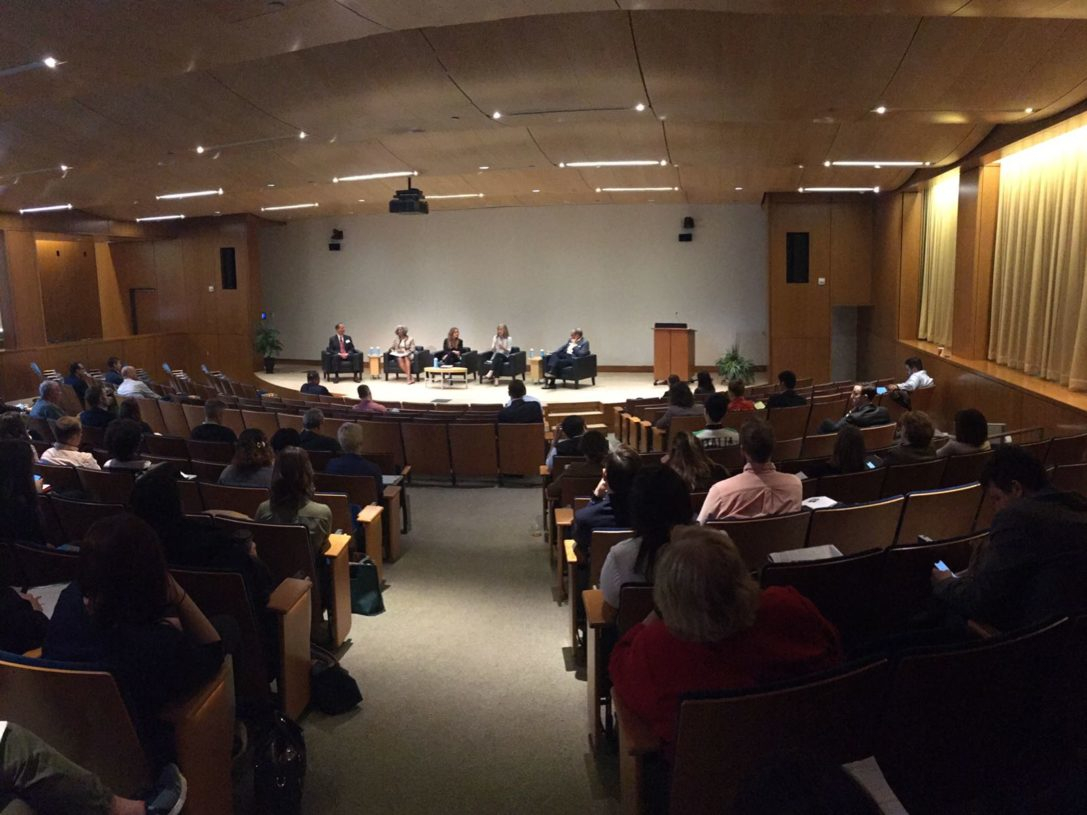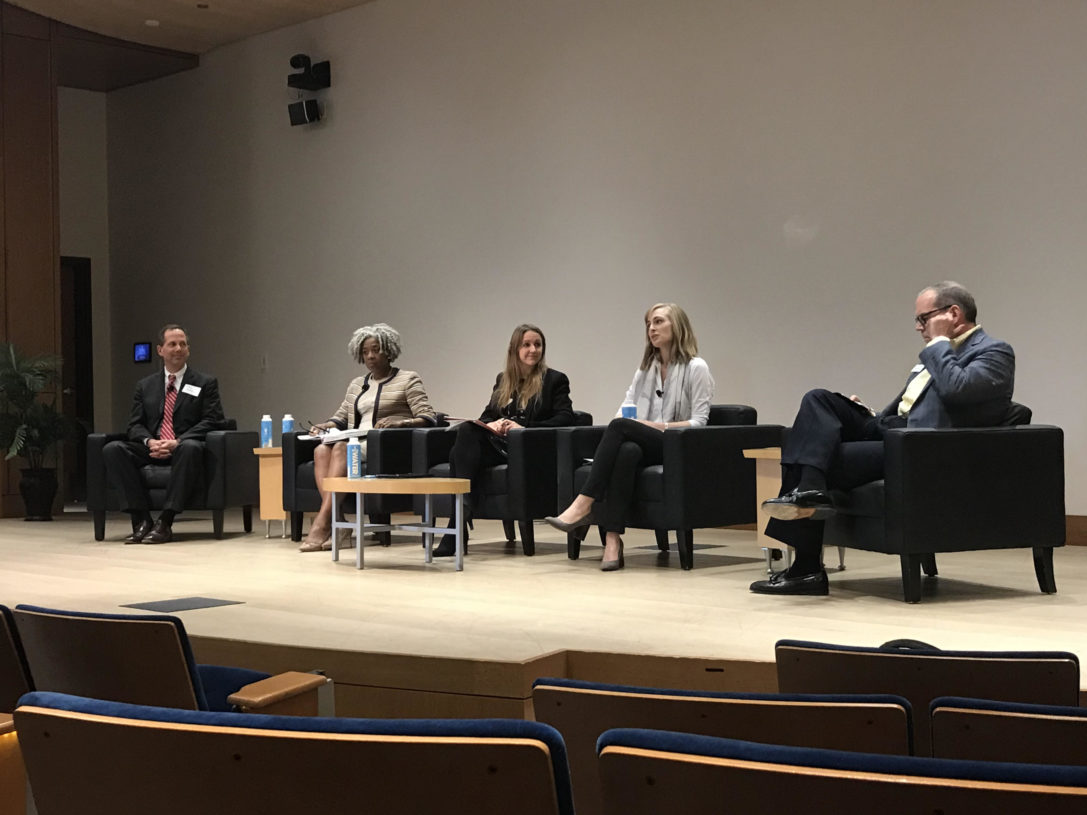Event notes challenges in measuring nonprofit investment
- April 25, 2018
- By Guest Author
- 2 minute read

Danny Lee, MBA/MSW 2018, wrote this post on behalf of the Impact Investing Symposium.
Imagine with me a motley crew of venture capitalists, community development financial institutions, international social entrepreneurs, philanthropic foundations, Olin MBAs, and many others all from diverse industries exchanging knowledge and ideas about how to wrestle and wrangle the financial industry for social welfare.
This scenario was a reality at Olin Business School’s third annual Impact Investing Symposium, where a stellar panel strategized solutions to common challenges in the impact investing space, breakout sessions dove deeper into local and state contexts, and a closing reception further cultivated a networked force of impact investors.
WashU’s law school, Brown School of Social Work, and the Institute for Public Health were represented at the event.

The theme centered on leveraging the standard financial tools used in the traditional for-profit private sector to improve accountability and evidence-based/metric-driven impact work in the public sector.
Redefining relationships between investors/funders with its investment recipients by underpinning the transfer of capital with social values was then the key takeaway in learning about how to scale any future outcome driven initiatives.
The day began as keynote speaker Mike Mills, managing director of Renewable Energy Alternatives, shared how renewable energy tax incentives and structures can be leveraged to support social causes, positively disrupting the energy industry.
A great example of this is the use of Net Metering, a system in which REA uses solar panels or renewable energy generators to transfer any excess or surplus power from a connected public-utility power grid to a local underserved school. This lowers the energy costs for the school and leaves more money for the local school district to invest in updated school supplies or safer buildings.
Next, a panel of impact investing pioneers—Tim Coffin (Breckenridge Capital), Jessie Wilson (Baillie Gifford), Sandra Moore (Advantage Capital), and Kacey Mahrt (US Bank Community Development Corporation)—spoke to how to combat some of the challenges they navigate in this line of work.
Communicating the value proposition around more nebulous social values (i.e., racial and gender equity) to reluctant or traditional philanthropists is a common historical pitfall, but operationalizing or identifying quantitative metrics to prove measurable outcomes alleviates anxiety for investors.
Finally, the breakout sessions provided an opportunity for guests, including myself, to engage in deeper learning about impact investing within the context of the city of St. Louis and hearing about the broader trends of the $15 billion industry.
Needless to say, the symposium was a tremendous learning experience and an even better opportunity to network with other impact-driven professionals who all brought their own flavor to an inherently transdisciplinary space. I highly encourage those who missed it to attend next year’s Impact Investing Symposium at Olin.
An enormous shout out to Laura Tomassi, Jessica Penner, and Kelcee Sachtleben for making this entire event happen and to Rich Ryffel for the backstage support and moderation of the panel.
Media inquiries
For assistance with media inquiries and to find faculty experts, please contact Washington University Marketing & Communications.
Monday–Friday, 8:30 to 5 p.m.
Sara Savat
Senior News Director, Business and Social Sciences
